#Roscoe Conkling
Text
ulysses s grant gay allegations????
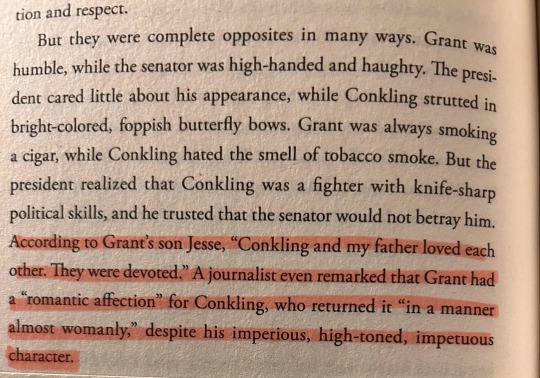
from An Assassin in Utopia: The True Story of a Nineteenth-Century Sex Cult and a President's Murder by Susan Wels
#the source for this part is in Grant by Rom Chernow which i have not read#history#ulysses s grant#roscoe conkling
13 notes
·
View notes
Text
The Elegant Mr. Arthur
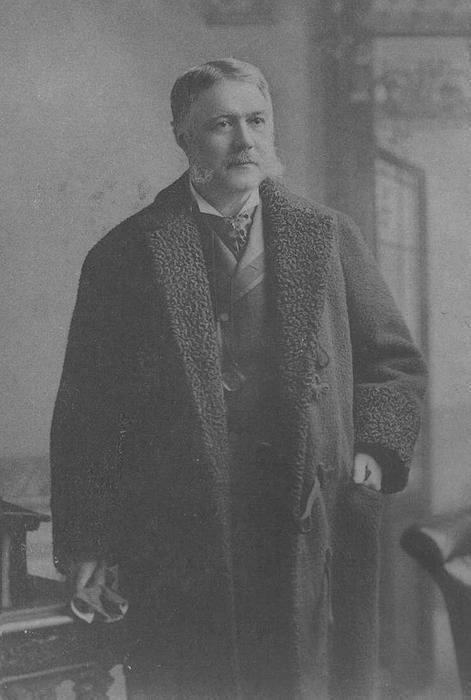
It was about two hours after midnight on September 20, 1881, and not unusual for the resident of 123 Lexington Avenue in New York City to be awake at such a late hour or to have plenty of guests. In fact, he preferred to keep late hours, entertaining friends deep into the night with late-night dinner, drinks, and endless conversation. Yet, on this night, 123 Lexington Avenue was somber and the mood was grave. Just a few hours earlier -- at 11:30 PM -- a messenger knocked on the door of Vice President Chester Alan Arthur's Manhattan brownstone and handed Arthur a telegram. Surrounded by a few friends and colleagues, Arthur read that President James Garfield, just 49 years old and in office for almost exactly 200 days, had died at a beach cottage rough 60 miles away, in Elberon, New Jersey. Turning to his friends in his sitting room, Arthur said, "I hope -- my God, I do hope it is a mistake."
On July 2nd, President Garfield was shot twice and seriously wounded by Charles Guiteau as he walked through the Baltimore & Potomac Railroad Station in Washington, D.C. with Secretary of State James G. Blaine and Secretary of War Robert Todd Lincoln (son of Abraham Lincoln), en route to a speaking engagement at his alma mater, Williams College in Massachusetts. Guiteau was a disgruntled, disturbed, and delusional office-seeker who had been pleading for an appointment as consul to Paris despite an absence of diplomatic or political experience and a complete lack of qualifications. Hounding Garfield throughout the early months of an Administration that had just begun on March 4, 1881, Guiteau's constant harassment of the new President finally resulted in Secretary Blaine ordering Guiteau to never return to the White House again. Guiteau felt that he had been entitled to some office, particularly a high-profile ambassadorship, and was terribly upset that Garfield and his Cabinet members refused to consider his requests. Blaine's order to stay away drove Guiteau to purchase an ivory-handled .44 British Bulldog revolver (specifically chosen because Guiteau felt that particular firearm would look good in a museum) and he began stalking Garfield throughout Washington before finally shooting him in the rail station two days before Independence Day 1881. As police arrested him, Guiteau shouted, "I am a Stalwart of the Stalwarts...Arthur is President now!"
But, Arthur wasn't President; not yet at least. Garfield was a physically robust man and relatively young in comparison to most Presidents. Although one bullet had lodged in Garfield's spine, the other bullet grazed his arm and caused no significant damage. While it appeared that he was gravely immediately following the shooting, Garfield's vital signs soon started to improve and the American people began to get their hopes up about a full recovery. A vigil of sorts was underway as President Garfield convalesced in the White House, and his doctors issued regular bulletins updating his condition. Garfield's doctors also poked and prodded with unsterilized instruments and dirty fingers to attempt to locate the bullet still inside of the President's body. Had they left it alone, Garfield almost certainly would have survived; his wounds were significantly less dangerous than those survived by Ronald Reagan 100 years later. However, the unnecessary poking and prodding resulted in a serious infection that ravaged Garfield's body, weakened his heart, and left the muscular, 215-pound President emaciated and weighing less than 135 pounds. After fighting for his life in the sweltering summer heat of Washington, on September 6th it was finally decided to transport Garfield to a cottage on the Jersey Shore in hopes that he could benefit from the fresh ocean air. Sadly, it was too late. The infections were accompanied by blood poisoning and pneumonia, among other ailments. On September 19th, at 10:35 PM, Garfield suffered a massive heart attack and was pronounced dead. In the 79 days since he had been shot, Garfield had lost over 80 pounds and the 49-year-old President's dark brown hair and beard had turned a ghastly white color. An hour later, the messenger arrived at 123 Lexington Avenue.
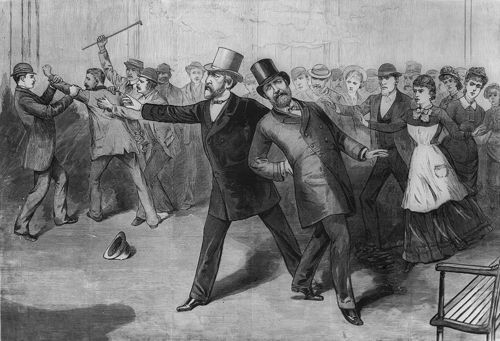
•••
The Vice Presidency was a stretch. Chet Arthur of New York as Vice President? When offered the Republican Vice Presidential nomination by James Garfield in 1880, Chester Arthur was urged by his political mentor, the leader of the Stalwart branch of the Republican Party, Senator Roscoe Conkling of New York, to decline the appointment. Arthur, a man who had never spent a day in Congress or been elected to any office at any level, couldn't turn down such an unexpected opportunity. He accepted the nomination and was elected alongside Garfield in November 1880, but most of the country (rightfully) saw Arthur as the poster boy for a machine politician elevated by the spoils system. The Vice Presidency was certainly a stretch for Chester Arthur, but President of the United States? That was an almost frightening thought to a nation still recovering from Civil War and desperately seeking civil service reform, especially now that a disgruntled office-seeker has assassinated the President. The idea of Arthur as President left a lot of Americans worried -- some because Arthur's political background was as the powerful and somewhat shady Collector of the Port of New York, appointed during the controversial Administration of President Ulysses S. Grant and eventually fired by President Rutherford B. Hayes during a housecleaning of corrupt institutions; and some because James Garfield's murderer had claimed to be a Stalwart and, by his own words, insinuated that Garfield's shooting might be a conspiracy on behalf of Arthur's faction of the divided Republican Party.
Chester Arthur was a creature of the era known as the "Gilded Age" and was the symbolic mascot for the widespread corruption of the 1870's due to his position at the Port of New York. Born in Vermont in 1829, Arthur was the son of a preacher and grew up mostly in upstate New York, graduated from Schenectady's Union College in 1848, briefly taught school was studying law, and was admitted to the bar in 1854. As his law practice grew in the 1850's, Arthur immersed himself in New York Republican politics yet never ran for office. A political appointee to the New York State Militia, he found himself serving during the Civil War and his superb organizational skills led to quick promotions all the way to quartermaster general in 1862, a position which carried the rank of brigadier. As a political appointee to the militia, however, Arthur served at the pleasure of the Governor of New York and was forced to resign in 1862 when a Democratic Governor took office. Returning to New York City, Arthur resumed his law practice and political gamesmanship. More appointments came his way as he supported Republican candidates throughout the state and worked on national campaigns such as President Lincoln's 1864 bid for re-election and Ulysses S. Grant's 1868 Presidential campaign.
In 1871, President Grant appointed Arthur as Collector of customs at the Port of New York, which gave Arthur responsibility for about 75% of the nation's customs duties and was one of the most powerful patronage positions available in the United States government. Arthur used his office to efficiently raise money for Republican campaigns and candidates, supporting President Grant's 1872 re-election campaign by seeking contributions from his employees at the customhouse. In 1876, Arthur championed his political mentor, Roscoe Conkling, for the Republican Presidential nomination, but supported Rutherford B. Hayes in the general election, once again using the employees at the customhouse to help raise money to finance the successful Republican campaign. However, once Hayes was elected, the new President made it clear that he was serious about civil service reform and that meant reforming Arthur's customhouse, too. In 1877, Arthur testified before the Jay Commission, which was formed to investigate charges of corruption and eventually recommended that President Hayes reduce the workforce of the customhouse and eliminate the corrupt elements that had worked there for so long. Due to Arthur's longtime support of the Republican Party, President Hayes offered him an appointment as consul in Paris in order to quietly remove him from the Port of New York. When Arthur refused the appointment, the President fired him and Arthur resumed his law practice in New York City (Hayes intended to replace Arthur with Theodore Roosevelt, Sr. -- father of the future President -- but Conkling felt insulted by Hayes's termination of Arthur and worked to kill Roosevelt's appointment during his Senate confirmation ).
When Arthur headed to the 1880 Republican National Convention at the Interstate Exposition Building in Chicago, it was as a New York delegate supporting the aspirations of former President Ulysses S. Grant who was coming out of retirement to seek an unprecedented third term. However, neither of the front-runners for the nomination -- Grant and Senator James G. Blaine of Maine -- could capture enough votes from delegates to clinch the nomination. After thirty-five ballots, Blaine and another prospective candidate, John Sherman of Ohio, threw their support behind a dark horse candidate -- Ohio Congressman James A. Garfield. On the next ballot, Garfield clinched the nomination and reached out to the opposing wing of the Republican Party for his Vice Presidential choice. The first choice, Levi P. Morton of New York (who would later serve as President Benjamin Harrison's Vice President) declined Garfield's offer, and Arthur -- who had never previously held an elective office -- excitedly accepted, much to the chagrin of his angry political mentor, Roscoe Conkling. Not confident in Garfield's chances for election, Conkling told Arthur, "You should drop it as you would a red hot shot from the forge." Arthur replied, "There is something else to be said," and Conkling asked in disbelief, "What, sir, you think of accepting?" Despite the complaints and anger of Conkling, Arthur told him, "The office of Vice President is a greater honor than I have ever dreamed of attaining. I shall accept. In a calmer moment you will look at this differently."
Following the election, Arthur prepared to settle into the quiet role of Vice President during the 19th Century. The Vice President of the United States has only one real Constitutional responsibility -- to preside over the Senate, and even that responsibility is normally delegated to Senators who rotate as presiding officer almost daily. The powerful or even influential American Vice Presidency is a fairly recent evolution, not even 50 years old. While some Vice Presidents were relied upon for advice or counsel or given larger duties than others, most Vice Presidents were so far removed from the Executive Branch that they were not only kept out of the decision-making process but also kept in the dark about certain information. For example, when President Franklin D. Roosevelt died towards the end of World War II in April 1945 and was succeeded by his Vice President, Harry S. Truman, the new President Truman had to be quickly briefed about the existence of the Manhattan Project to develop atomic weaponry. The first Vice President to have an office in the White House was Walter Mondale and that didn't occur until 1977, so in 1881, a Vice President was expected to preside over the Senate on special occasions, cast a tie-breaking vote when necessary, and be available to take the oath of office if the President happened to die or resign.
Like most 19th Century Vice Presidents, Chester Arthur didn't even spend much time in Washington, and he was returning to his regular home in New York City on July 2, 1881 when he stepped off a steamship with Roscoe Conkling and was told that President Garfield had been shot. In fact, the first message that Arthur received erroneously reported that Garfield was already dead and at the request of Garfield's Cabinet, the stunned Vice President immediately returned to Washington, D.C. to proceed with the next steps necessary for maintaining the continuity of government. When Arthur arrived in Washington, President Garfield's condition had improved and his recovery continued to show signs of promise as the Vice President and the nation prayed for him and held vigil throughout the summer. Shaken by rumors that he and his "Stalwart" wing of the Republican Party conspired to assassinate Garfield, Arthur returned home to New York City, hesitant to invite criticism that his continued presence in Washington was merely an eager deathwatch so that he could grab power.
Garfield clung to life for eighty excruciating days with doctors probing him in an effort to remove the bullet in his body, causing infections and leaving the President suffering from blood poisoning which led him to hallucinate at times. The Navy helped rig together an early form of air conditioning in Garfield's White House sickroom in order to give him relief from Washington's stifling summer conditions. When Garfield was taken by train to New Jersey in early-September, it was clear to many that the long vigil was nearly over. More infections set in, along with pneumonia and painful spasms of angina. When the messenger arrived at 123 Lexington Avenue just before midnight on September 20, 1881 to inform Arthur that President Garfield had died just 60 miles away, the new President wasn't surprised, but he also wasn't quite prepared. The nation worried about the lifetime political operative stepping into the position vacated by the promising President assassinated before he could enact the civil service reforms promised in his Inaugural Address. What would Arthur -- the quintessential patronage politician -- do as President? Nobody knew, but Chester Alan Arthur had an idea.
•••
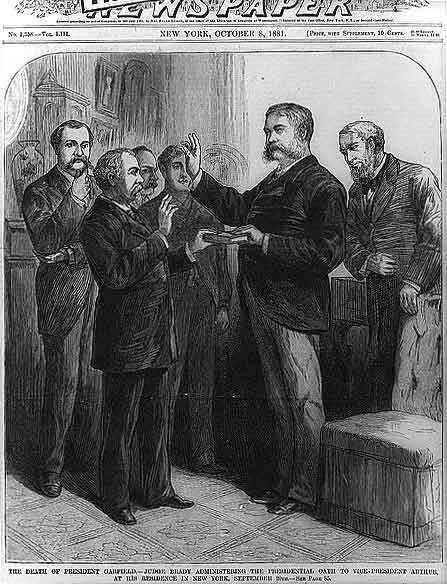
It was fitting that Arthur was surrounded by friends when he took the oath of office at his home in Manhattan at 2:15 AM on September 20, 1881. Arthur's beautiful wife, Nell, died of pneumonia in January 1880 and he was inconsolable for months, regretting for the rest of the life the fact that she never saw his election as Vice President or ascendancy to the Presidency. People who knew Arthur stated that he clearly never fully recovered from her death, and that as a "deeply emotional...romantic person," it was no surprise that he ordered that fresh flowers were placed before her portrait in the White House every day while he was President.
Chester Arthur had a lot of friends. That's what happens when you control as many patronage positions as Arthur controlled for as long as Arthur controlled them. But it wasn't just his political position that gained him friends. Arthur was a great storyteller, a man who loved to hunt and fish, kind, easy-going, charming, graceful, and smooth. During his life he was nicknamed "Elegant Arthur" and is considered one of the most stylish of Presidents. Photographs of Presidents from the 19th Century show us men no different than statues. They dressed the same, they looked the same, and when portrayed in the black and white photos of the time, we feel no differently when we see their pictures than when we see a slab of marble carved in their image. Arthur leaps out of his photographs, however. He was a very large man for his era, standing 6'2" and weighing around 220 pounds during his Presidency. Large muttonchops connected to a bushy mustache and his close-cropped, wavy brown hair seemed to pull back his forehead and place more emphasis on expressive black eyes that easily reflected his moods. While it seems that most Presidents of the 19th Century wore the same boring black suit and black tie like a uniform, Arthur's ties are patterned, his jewelry is visible, collars are crisp, handkerchiefs are folded creatively, and his lapels shine as if they were polished along with his shoes. We see photographs of Arthur in fashionable overcoats, a wide variety of hats, and he employed a personal valet who helped the President change clothes for every occasion and multiple times a day -- he was said to have over 80 pairs of pants.
Most apparent of all is that Arthur was a gentleman -- an interesting man with superb social skills and fastidious manners. Even as one of the top operatives in New York's Republican political machine of the corrupt 1870's, he was nicknamed the "Gentleman Boss." As President, he brought entertainment back to the White House -- something that had been missing on a large scale since before the Civil War twenty years earlier. One of his recent predecessors, Rutherford B. Hayes, was one of the few critics of this development, stating that there was "nothing like it before in the Executive Mansion -- liquor, snobbery, and worse." Arthur also redecorated the White House, hiring Louis Comfort Tiffany to help with the design. To help raise money for the redecoration, Arthur basically held a White House yard sale. On the lawn of the mansion, twenty-four wagons full of history (including a pair of Abraham Lincoln's pants that were left behind in a closet) were sold to citizens. To some, the items were priceless; to President Arthur, they were ugly and a man like Chester Arthur did not live in an ugly home. Several weeks after Garfield died, Arthur got his first look at his new home and quickly stated, "I will not live in a house like this." He didn't end up moving into the White House until three months into his Presidency.
•••
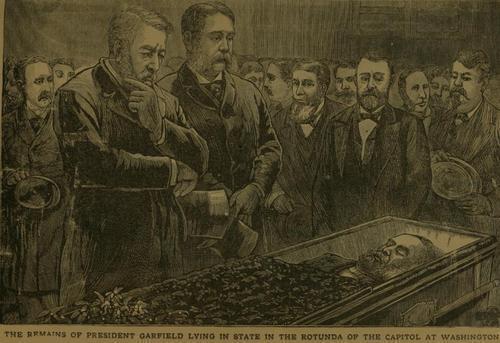
After taking the oath of office at home in Manhattan in the early hours of September 20, 1881, now-President Arthur proceeded to Washington, D.C., stopping in Long Branch, New Jersey to pay respects to the late President Garfield and his grieving family. Once Arthur succeeded to the Presidency upon Garfield's death, there was no Vice President, no president pro tempore of the Senate, and no Speaker of the House because Congress had not elected its leadership yet, thus, there was no Constitutional line of succession. If something had happened to Arthur at that moment, the United States would have faced an unprecedented Constitutional crisis. As his first act as President, Arthur immediately called the Senate into session in order to select their leadership positions and place someone in the line of succession. Upon arriving in Washington, Attorney General Wayne MacVeagh suggested that Arthur take a second oath of office and he did so at the U.S. Capitol on September 22nd in the presence of Garfield's Cabinet, members of Congress, Supreme Court Justices, and former Presidents Grant and Hayes.
Americans worried about the former machine politician's integrity were transformed quickly as Chester Arthur underwent somewhat of a transformation himself. Widely considered a lapdog of New York's Roscoe Conkling, Arthur broke ranks with the party boss and pushed for the same civil service reform championed by James Garfield prior to the assassination. Arthur's former associates in the New York Republican Party were disappointed when he declined their requests for political favors. One former colleague sadly reported, "He isn't 'Chet' Arthur anymore. He's the President." Arthur found that the transformation was almost automatic and out of his control, noting that "Since I came here I have learned that Chester A. Arthur is one man and the President of the United States is another." His old benefactor, Conkling, was one critic of the new President, complaining "I have but one annoyance with the Administration of President Arthur and that is, in contrast with it, the Administration of Hayes becomes respectable, if not heroic." Arthur signed the Pendleton Act in 1883 which created a modern civil service system and eliminated the spoils system that had long dominated American politics. The reform, which Conkling called "snivel service" was the final break between the longtime friends and colleagues.
To the American people, the great surprise of the Arthur Administration was the fact that it was clean, honest, and efficient. Arthur helped lift the gloomy moods that had shadowed Washington through the Civil War, Lincoln's assassination, Andrew Johnson's Impeachment, Reconstruction, the corruption of the Gilded Age, and Garfield's assassination. His popularity rose throughout his term and most critics focused on his lavish entertainment or the fact that he was notoriously late for meetings and seemed bored or lethargic at times. He often procrastinated -- as a White House clerk once said, "President Arthur never did today what he could put off until tomorrow." Still, most Americans were happy with President Arthur and echoed the thoughts of Mark Twain who said, "I am but one in 55 million; still, in the opinion of those one-fifty-five-millionth of the country's population, it would be hard to better President Arthur's Administration."
He was bored, though. President Arthur didn't like being President. He enjoyed the entertaining dinners that he could throw and loved public events or ceremonies that allowed him to meet the people of the United States, but the desk work was tedious and he wasn't interested in policy. Arthur stayed up late and seemed to vacation often, which perplexed many people because it was said that he was constantly exhausted. What they didn't know was that from almost the time he became President, Chester Arthur was dying. In 1882, he was diagnosed with Bright's disease, a fatal kidney ailment at the time. Despite reports that he was suffering from the disease, Arthur hid it from the public, desperately protecting his privacy, as always. Arthur's distaste for the Presidency probably stemmed in part from depression triggered by the Bright's disease. At times, Arthur suffered from debilitating illness and it was always covered with a story about the President catching a cold during a fishing trip or spending too much time in the sun while hunting. In a letter to his son Alan in 1883, the President confided, "I have been so ill that I have hardly been able to dispose of the...business before me."
Despite his popularity, Republican leaders opposed Arthur's nomination as President in his own right in 1884. The man who opposed it most, however, was the President himself, who stated "I do not want to be re-elected." Not only was he disinterested in a second term, but he knew very well that there was a possibility he might not even survive to the end of his current term. He did, and after attending the inauguration of his successor, Grover Cleveland, on March 4, 1885, Arthur returned home to New York City where his health rapidly declined. The former President was aware that he was dying and made plans for a relatively quiet retirement, deciding to practice law, but doing very little work due to his health. When asked about his future, Arthur said, "There doesn't seem anything for an ex-President to do but to go out in the country and raise big pumpkins." On November 16, 1886, Arthur suffered a stroke that paralyzed his left side. Gravely ill, he called his son to his bedside the day before his death and had all of his public and private papers stuffed into trash cans and burned. On November 18, 1886, the 57-year-old former President died in the same place he became President just five years earlier, 123 Lexington Avenue in New York City. After a quiet funeral at the Church of Heavenly Rest on Fifth Avenue in New York, Arthur's remains were buried next to his beloved wife at Rural Cemetery in Albany, New York.
•••
When President Arthur had many of his personal papers burned prior to his death, he eliminated one of the best sources of information for future historians. With a thin resume and a fairly uneventful Presidency, there wasn't much public information about his career, either. This leaves us with very little to remember Chester Alan Arthur by. Research on his life -- particularly his personal life -- is difficult, and Arthur would have appreciated that. During his Presidency, leaders of the temperance movement called on Arthur and urged him to follow the non-alcoholic lifestyle led by President Hayes and his teetotaler wife, who was known as "Lemonade Lucy."
Arthur's response: "Madam, I may be President of the United States, but my private life is nobody's damn business."
And so it isn't.
#History#Presidents#Chester Arthur#Chester A. Arthur#Chester Alan Arthur#President Arthur#Arthur Administration#Presidential History#The Elegant Mr. Arthur#James A. Garfield#President Garfield#Assassination of James Garfield#Garfield Assassination#Charles Guiteau#Inauguration of Chester Arthur#Presidential Assassinations#Presidential Succession#Roscoe Conkling#Gilded Age#Civil Service Reform#Pendleton Act#1880 Election#1884 Election#Politics#Political History#Gentleman Boss#Presidential Personalities#Presidency#Vice Presidents#Vice President Arthur
8 notes
·
View notes
Text

@tylercanoe told you i would
#whats the shipname? claine? conklaine? blonkling?#roscoe conkling#james g. blaine#toxic yaoi (HEAVY /J)#i doubt i got the dynamic right but An Attempt Was Made At Least!#Spotify
11 notes
·
View notes
Text


#my phone begging for mercy as i ignore its low storage message and download 2 bigass files of unfunny ironic memes#roscoe conkling#death by lighting dont pull another 6'3“ guiteau thing. it was hard enough to forgive that
4 notes
·
View notes
Text
my process as a historian is that every time i learn about a new period or event i locate the weirdest most profoundly unlikeable man on its very periphery and decide he's my best friend forever and probably also my boyfriend and he and i skip into the sunset holding hands basically
#it's pathological#this post was originally about preston brooks and roscoe conkling btw#same thing happened with both of them#i love me a bitch
59 notes
·
View notes
Text
I have to talk about Chester Arthur. His story makes me go crazy. A mediocre president from the 1880s who's completely forgotten today has one of the best redemption stories I've ever heard and I need to make people understand just how cool his story is.
So, like, he starts out as this idealist, okay? He's the son of an abolitionist minister and becomes famous as a New York lawyer who defends the North's version of Rosa Parks whose story desegregates New York City's trolley system.
Then he starts getting pulled into politics and becomes one of the grimiest pieces of the political machine. He wants money, power, prestige, and he gets it. He becomes the right-hand man of Roscoe Conkling, the most feared political boss in the nation, a guy who will throw his weight around and do the most ruthless things imaginable to keep his friends in power and destroy his enemies.
Because Arthur's this guy's top lackey, he gets to be Controller of the Port of New York--the best-paying political appointment in the country, because that port brings in, like, 70% of the federal government's funds in tariffs. He gets a huge salary plus a percentage of all the fines they levy on lawbreakers, and because he's not afraid to make up infractions to fine people over, he is absolutely raking in the dough. Making the rough equivalent of $1.3 million a year--absolutely insane amounts of money for a government position. He's spending ridiculous sums on clothes, buying huge amounts of alcohol and cigars to share with people as part of his job recruiting supporters to the party, going out nearly every night to wine and dine people as part of his work in the political machine. He's living the high life. Even when President Hayes pulls him from his position on suspicions of fraud, he's still living a great life of wealth, power, and prestige.
Then in 1880, his beloved wife dies. While he's out of town working for a political campaign. And he can't get back in time to say goodbye before she dies. Because he's a guy who has big emotions, it absolutely tears him up inside, especially because Nell resented how much his political work kept him away from home. He has huge regrets, but he just moves in with Roscoe Conkling and keeps working for the political machine.
And then he gets a chance to be vice president. The Republican Party has nominated James Garfield, a dark horse candidate who wants to reform the spoils system that has given Conking his power and gave Arthur his position as Port Controller. Conkling is pissed, and he controls New York, and since the party's not going to win the election without New York, they think that appointing Conkling's top lackey as vice-president will pacify him.
They're wrong--Conkling orders Arthur to refuse--but Arthur thinks this sounds like a great opportunity. The only political position he's ever held is Port Controller--a job he wasn't elected to and that he was pulled from in disgrace. Vice President is way more than he could ever have hoped for. It's a position with a lot of political pull and zero actual responsibilities. He'll get to spend four years living in up in Washington high society. It's the perfect job! Of course he accepts, and Conkling comes around when he figures out that he can use this to his advantage.
When Garfield becomes president, Arthur does everything he can to undermine him. He uses every dirty political trick he can think of to block everything that Garfield wants to do. He refuses to let the Senate elect a president pro tempore so he can stay there and influence every bill that comes through. He all but openly boasts of buying votes in the election. He's so much Conkling's lackey that he may as well be the henchman of a cartoon supervillain. On Conkling's orders, he drags one of Garfield's Cabinet members out of bed in the middle of the night--while the guy is ill--to drag him to Conkling's house so he can be forced to resign. He's just absolutely a thorn in the president's side, a henchman doing everything he can to maintain the corrupt spoils system.
Then in July 1881, when Arthur's in New York helping Conkling's campaign, the president gets shot. By a guy who shouts, "Now Arthur will be president!" just after he fires the gun. Arthur has just spent the past four months fighting the president tooth and nail. Everyone thinks he's behind the assassination. There are lynch mobs looking to take out him and Conkling. The papers are tearing him apart.
Arthur is absolutely distraught. He rushes to Washington to speak with the president and assure him of his innocence, but the doctors won't let him in the room. He gets choked up when talking to the First Lady. Reporters find him weeping in his house in Washington. Once again, death has torn his world apart and he's not getting a chance to make amends.
Arthur goes to New York while the president is getting medical treatment, and he refuses to come to Washington and take charge because he doesn't dare to give the impression that he's looking to take over. No one wants Arthur to be president and he doesn't want to be president, and the possibility that this corrupt political lackey is about to ascend to the highest office in the land is absolutely terrifying to everyone.
Then in August, when it's becoming clear that the president is unlikely to recover, he gets a letter. From a 31-year-old invalid from New York named Julia Sand. A woman from a very politically-minded family who has been following Arthur's career for years. And she writes him this astounding letter that takes him to task for his corrupt, conniving ways, and the obsession with worldly power and prestige that has brought him wealth and fame at the cost of his own soul--and she tells him that he can do better. In the midst of a nationwide press that's tearing him apart, this one woman writes to tell him that she believes he has the capacity to be a good president and a good man if he changes his ways.
And then he does. After Garfield dies, people come to Arthur's house and find servants who tell them that Arthur is in his room weeping like a child (I told you he had big emotions), but he takes the oath of office and ascends to the presidency. And he becomes a completely different man. His first speech as president mentions that one of his top priorities is reforming the spoils system so that people will be appointed based on merit rather than getting appointed as political favors with each change in the administration. Even though this system made him president. When Conkling comes to Arthur's office telling him to appoint his people to important government positions, Arthur calls his demands outrageous, throws him out, and keeps Garfield's appointees in the positions. "He's not Chet Arthur anymore," one of his former political friends laments. "He's the president."
He loses all his former political friends. He's never trusted by the other side. Yet he sticks to his guns and continues to support spoils system reform. He prosecutes a postal service corruption case that everyone thought he would drop. He's the one who signs into law the first civil service reform bill, even though presidents have been trying to do this for more than ten years, and he's the person who's gained all his power through the spoils system. He immediately takes action to enforce this bill when he could have just dropped it. He becomes a champion of this issue even though it's the last thing anyone would have expected of him.
He oversees naval reform. He oversees a renovation of the White House. He still prefers the social duties of the presidency, but he's respectable in a way that no one expected. Possibly because Julia Sand keeps sending him letters of encouragement and advice over the next two years. But also because he's dying.
Not long after ascending to the presidency, he learns he's suffering from a terminal kidney disease. And he tells no one. He keeps going about his daily life, fulfilling his duties as president, and keeps his health problems hidden. Once again, death is upending his life, and this time it's his own death. He's lived a life he's ashamed of, and he doesn't have much time left to change. He enters the presidency as an example of the absolute worst of the political system, and leaves it as a respectable man.
He makes a token effort to seek re-election, but because of his health problems, he doesn't mind at all when someone else gets the nomination. He dies a couple of years after leaving office. The day before his death, he orders most of his papers burned, because he's ashamed of his old life--but among the things that are saved are the letters from Julia Sand, the woman who encouraged him to change his ways.
This is an astounding story full of so many twists and turns and dramatic moments. A man who falls from idealism into the worst kind of corruption and then claws his way back up to decency because of a series of devastating personal losses and unexpected opportunities to do more than he could have ever hoped to do. I just go crazy thinking about it and I need you all to understand just how amazing this story is.
#history is awesome#presidential talk#i thought about his story again this morning#and was once again struck by the desire to chase people down and make them understand just how amazing this story is#and instead of harassing random strangers i decided to inflict it on tumblr again#my original essay was rather too long and dry and tangled up in too many other details#and didn't quite capture the 'i want to chase you down and look you in the eye and make you freak out about this with me' vibe of this stor#this still doesn't quite capture it but at least it's shorter#and prevents me from rambling to unsuspecting family members#sorry for inflicting this on you again but what else am i supposed to do?
4K notes
·
View notes
Text
she roscoe on my conkling til I [a bullet enters through the back of my head and exits my throat]
7 notes
·
View notes
Text
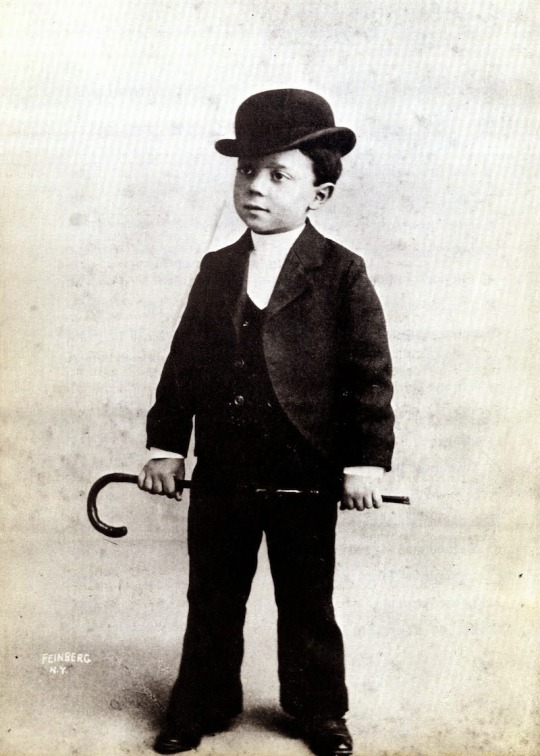
Roscoe Conkling "Fatty" Arbuckle (1887–1933)
was an american silent film actor, comedian, director and screenwriter
5 notes
·
View notes
Text
Charles Guiteau fact of the day!
Guiteau was gay with Roscoe Conkling and here's my far-fetched proof:
“on the sofa. I eyed him and he eyed me, and when he got through with his friend I stepped up to him and said ‘Good morning, Senator,’ and he said ‘good morning.’ I said, ‘I hope to get an appointment, Senator, and I hope when the matter comes up you will remember me, and he simply said, ‘perfectly,’ and I bowed and he bowed and we parted.”
Okay, but really they only met once and that was pretty much it. The man really thought making eye contact with someone will get him something.
21 notes
·
View notes
Text
”Here are enshrined the longing of great hearts and noble things that tower above the tide, the magic word that winged wonder starts, the garnered wisdom that never dies.”— Dr. Roscoe Conkling Brown, Jr.
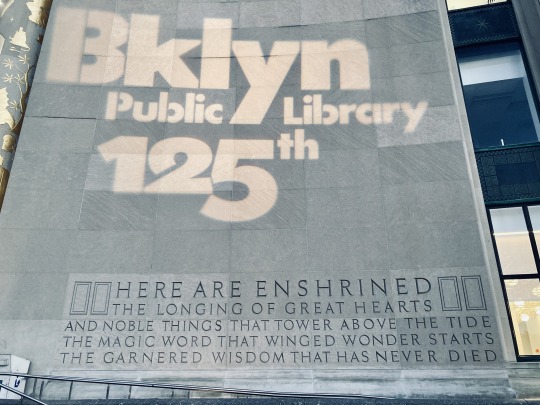
3 notes
·
View notes
Text
Rest in peace to stars that are now Angels in heaven
Mary Anissa Jones,Eleanor Cammack"Cammie"King, River Jude Phoenix, Niña Sophia Gabrielle "Sophie" Corullo, Judith Barsi, Heather Michele O'Rourke, Lucille Ricksen, Judy Garland, Margaret Hamilton, Clara Blandick, Terry, Shirley Temple Black 1928-2014, Baby Leroy, baby Peggy Montgomery, Peggy cartwright, Darla Jean Hood, Jean Darling, Peaches Jackson, Mary Ann Jackson, Dorothy DeBorba, Mary Kornman, Mildred Kornman, Carl Weathers, Carl Switzer, Billie Burke, Roberts Blossom, Jim Nabors, Frank Sutton, John Candy, Raymond Burr, Taruni Sachdev, Pauline Starke, Geraldine Jane Jacobi Russell, Ernestine Jane Geraldine Russell, Geraldine Brooks, Katharine Hepburn, Margot Mosher Merrill, Ruth Elizabeth "Bette" Davis, Walt Disney, Roald Dahl, Olivia Newton-John, Susan Buckner, Lisa Loring, Betty Jane Bierce, better known by her stage name Jane "Poni" Adams, Mary Treen, Dorothy Dell, Grace Ethel Cecile Rosalie Allen, Aileen Pringle, Roscoe Conkling "Fatty" Arbuckle, Ida Kitaeva Raphael, Virginia Mayo, Edna Purviance, Vivien Leigh, Virginia Weidler, Jane Withers, Clarence Nash, Shirley Jean Rickert, Bridgette Andersen, Dominique Dunne, Samantha Reed Smith, Pal, Virginia Rappe, Katharina Schratt, Hattie McDaniel, George Burns, Michael Gambon, Alan Rickman, Gene Wilder, Jack Albertson, Matthew Garber, Robbie Coltrane, Betty Tanner, Elizabeth Taylor, Peggy Maley, Peggy Ann Garner, Mary Margaret Peggy Wood, Dorothy McGuire, Peggy Mondo, Joanna Moore, Shirley Mills, Wayne Allwine, Charlie Chaplin, Virginia Karns , Stan Laurel, Hannah Chaplin, Mary Pickford, Jackie Coogan, Mildred Harris, Lita Grey, Paulette Goddard, Peggy Moran, Florence Lois Weber, Peggy Cass, Peggie Castle, Virginia Lee, Virginia Leith, Virginia Wood, Virginia Welles, Michael Lerner, June Marlowe, Carol Tevis, Jane Adams, Joan Crawford, Mary Ellen Trainor, Betty Ann Bruno, Anne Baxter, Greta Garbo, William Wyler, Robin Williams, May Robson, Mary Astor, Jane Darwell, Linda Darnell, Lloyd Berry, Pauline Newstone, Jean Hagen, Allison Hayes, Margaret Hayes, Anissa Jones, Sophie Firth, Edith Barrett, Eve Meyer, Taruni Sachdev my edit to those who passed away
1 note
·
View note
Text
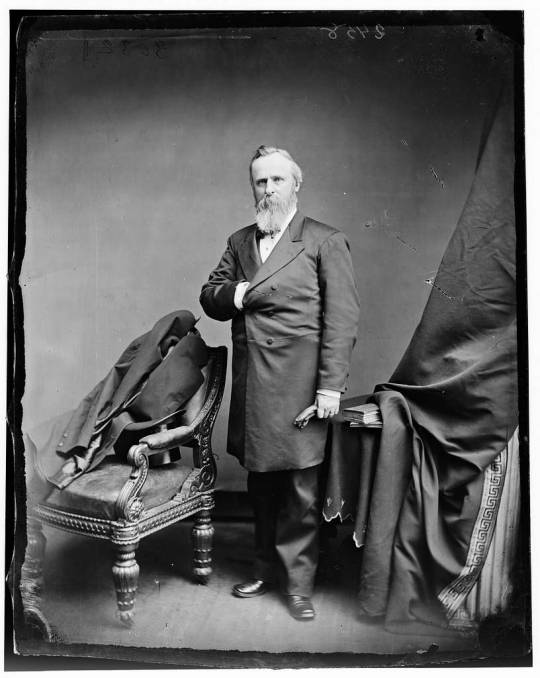
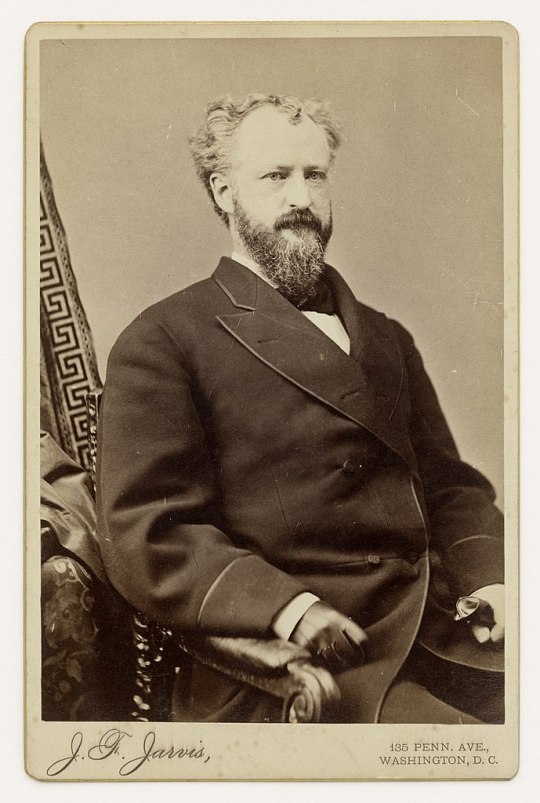

"If there are any two men in the Country whose opposition and hatred are a certificate of good character and sound Statesmanship they are [Roscoe] Conkling and [Benjamin F.] Butler. I enjoy the satisfaction of being fully endorsed by the hatred and opposition of both of these men."
-- President Rutherford B. Hayes, on his Radical Republican political rivals -- Senator Roscoe Conkling of New York and former Congressman Benjamin F. Butler of Massachusetts -- in a personal diary entry, January 16, 1881
#History#Rutherford B. Hayes#President Hayes#Hayes Administration#Presidential Quotes#Quotes by Presidents#Politics#Political Rivals#Political Feuds#Roscoe Conkling#Benjamin F. Butler#Presidential Rivals#Presidential Politics#Presidential History#Political History#Political Quotes#Radical Republicans#Reconstruction
13 notes
·
View notes
Text
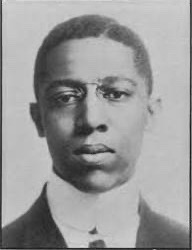
Lt. Colonel Dr. Roscoe Conkling Giles (May 6, 1890 – February 9, 1970) was the first African American to earn an MD from Cornell University (1915) and became the first African American to become certified by the American Board of Surgery. He was elected President of the National Medical Association.
He was born in Albany, New York to Reverend Francis Fenard and Laura Caldwell Giles. He graduated from Boys High School in Brooklyn, winning a scholarship to Cornell University for his impressive speech skills. He was initiated in the second class of Alpha Phi Alpha Fraternity. He drafted the fraternity ritual and assisted in drafting the constitution. He became treasurer of the national fraternity while at Cornell and was elected the National President of the Fraternity while attending Medical College.
After graduating with his BA, he became the first African American to attend medical school at Cornell University. He was asked to leave many times and received death threats. One of the requirements to get his MD included an internship, very few medical centers accepted African American students. He was accepted to study at Provident Hospital in Chicago.
He outscored over 250 applicants while taking the Civil Service Examination, and less-qualified physicians were chosen over him at both the Municipal Tuberculosis Sanitarium and the Oak Park Infirmary in Chicago.
Oscar DePriest stepped in to support him. He was appointed to be the supervisor of the Chicago Health Department. He was the first African American in the country to hold such a position. He received an appointment as a physician at the Cook County Hospital. He instead focused on his work at Provident Hospital.
He married Frances Reeder (1917) and the couple had three sons. He started a private medical practice which continued until his death. #africanhistory365 #africanexcellence #alphaphialpha
1 note
·
View note
Text
I cant draw today so they're bad but I might as well put some of these roscoes somewhere
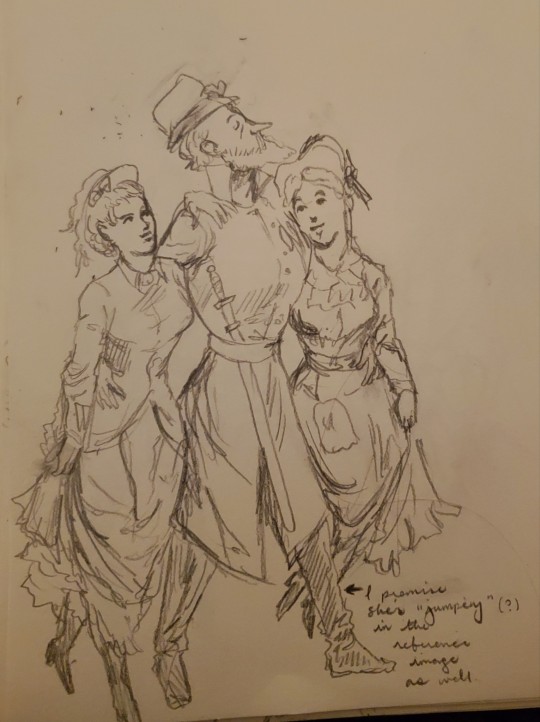
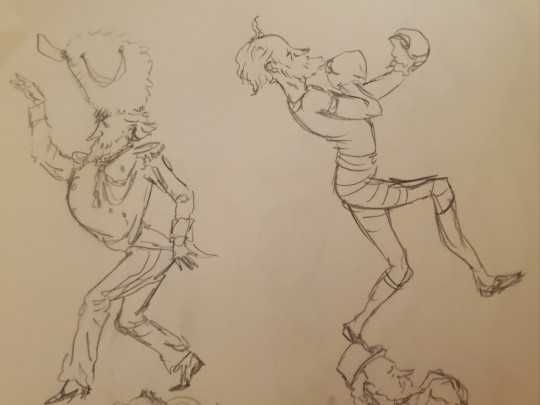
#roscoe conkling#doodles#they were always drawing him with these poses#i wish i could concieve of poses like these. cant-draw days are so frustrating
4 notes
·
View notes
Text
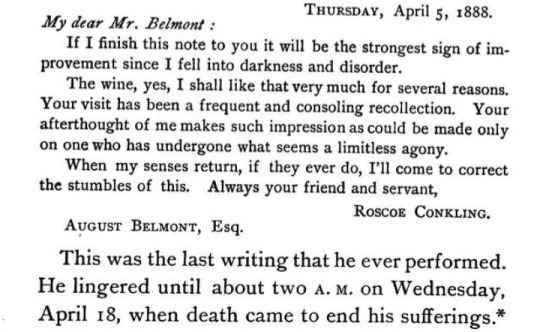
i've read a lot of final letters that are like peaceful and at ease and downplaying whatever physical discomfort the writer is in but i've never read one like this and it's strangely unsettling to me. to be fair this was after they cut a hole in his skull so i imagine "limitless agony" is fair
#i actually feel bad for him#i think about this letter enough that i decided to post it#my two evil congressmen (conkling and brooks) both died of like a sudden onset of some horrific disease#god really does send plagues down i guess#roscoe
7 notes
·
View notes
Text
Time to talk about James Garfield! He's nearly forgotten today because his presidency was cut so short, but he might be one of the biggest over-achievers ever to reach the White House, and I'm overdue to tell you about his life story.
James Garfield, like Lincoln, came from a dirt poor background. Pretty sure he was the last president to be born in a log cabin. His father was a farmer who died when he was three years old, leaving him in the care of a mother and older brother who doted on him. They recognized that he was smart and wanted him to make something of himself, but young James had read a few too many books that romanticized life at sea, so at sixteen he ran away from home to get the closest possible version of that experience that he could manage--working on a boat in the Erie Canal. He came back home within a few months because he nearly drowned, and by then, his mother and brother had scraped up enough money for him to go to school.
After high school, he went to a prep school where he worked as a janitor to pay for his tuition. At least, for the first year. By his second year, the school decided to hire him to teach six classes! And later added two more because he was so popular! While he was still attending the school as a student, mind you! He went to college, became the principal of his old prep school, studied for the bar and became a lawyer, got involved in state politics, and then left to go serve in the Civil War, where he became the youngest-ever major general. Then his friends asked him to run for the US House of Representatives, and even though he refused to leave the army to go campaign, he won the election. Then he did leave the army to join the House, where he served eight terms.
Which brings us to the 1880 presidential election. Which was an absolutely wild and crazy political battle within the Republican Party. The big issue was civil service reform. Up to this point, all federal employees were appointed by the ruling president's party--it was called the spoils system, because "to the victor go the spoils." The president (or whoever he gave hiring power to) could appoint whoever he wanted to any government position, regardless of whether or not the person had any relevant experience. By the 1870s, this system had become a cesspool of corruption and cronyism, but the Republicans were split on the need for reform. On one side, you had the Stalwarts, who wanted to continue with business as usual. On the other side were the Half-Breeds, who wanted to replace the spoils system with a merit-based system where employees would have to meet certain education or experience requirements to get the job, which they could then stay in regardless of which party was in power.
Anyway, when it came time to choose the presidential candidate, the battle got ugly. On one side, you had Senator Roscoe Conkling of New York, a political boss who maintained his power through the spoils system, who was there to nominate Ulysses S. Grant to a third term. On the other side, you had James G. Blaine (the Magnetic Man from Maine), a Half-Breed who'd been Conkling's archnemesis ever since he called him out on the Senate floor as a seedy, ruthless villain.
James Garfield had no interest in being president; he'd seen too many of his friends (including James Blaine) get their principles warped by their obsession with the presidency, and he wanted to stay well away from all that. He was there to nominate John Sherman (younger brother of a certain famous Civil War general). Sherman, for his part, knew that Garfield was the more popular politician from Ohio, and hoped to neutralize him as a potential competitor by asking him to give the nominating speech.
So anyhow, at the nominating convention, Conkling gives this rousing speech in support of Grant that has the crowd going wild. There’s no way Garfield's going to be able to follow that. So what he does is look at the crowd and calmly talk to them about how there may be a lot of noise and emotion here today, but this isn't where the election is going to be won. Votes are going to be cast by ordinary Americans living on their homes and farms with their families, and they need to know that there's someone who can serve their interests in the White House. The crowd is spellbound. Garfield then asks them, "What do we want?" To Garfield's horror, one guy yells out, "We want Garfield!"
Garfield made it clear he was there to nominate Sherman, and finished his speech. Then the voting began. Round after round after round of voting, with no one candidate getting enough votes to win the nomination. Garfield got one vote in the third round. In the thirty-fourth round, he suddenly got seventeen votes, as delegates desperate to escape the gridlock decided to throw some votes behind a different name. Garfield stood to protest, saying that no one had the right to vote for him since he hadn't consented to be nominated, but the president of the convention, who secretly liked Garfield more than any of the other candidates, told him to sit down.
By the thirty-sixth vote, Garfield won the nomination. He reluctantly accepted.
When Garfield won the presidential election, it was the first time since the Civil War that a president had been elected who had support in both the North and South. Garfield was seen as a man of the people, living proof of the American dream that any man, no matter how lowly, could one day rise to become president. As Garfield rode in the carriage toward the White House for his inauguration, a man in the crowd yelled out, "Low bridge!" as a reference to Garfield's now-legendary past as a canal worker; Garfield grinned, took off his hat, and ducked.
Once he became president, Garfield became embroiled in the war over civil service reform. Since it hadn't been reformed, he had a constant stream of office-seekers coming to beg for appointments to federal positions, and a lot of federal positions that needed to be filled. His archnemesis was Roscoe Conkling; Garfield was determined to enact civil service reform, and Conkling wanted to do all in his power to prevent it. Conkling forced Stalwart members of Garfield's Cabinet to resign, and he went to war with Garfield over the filling of federal positions.
And that's an interesting story, but the more important part of the battle was with another person entirely, who Garfield had never met. Charles Guiteau was a madman with a checkered past, who'd been involved in strange sex cults and in running various scams--mostly running out on rent payments. During Garfield's election, he gave one speech in support of Garfield to a tiny crowd, and Guiteau, in his delusion, thought that under the spoils system, this entitled him to a reward. He wanted to be a foreign ambassador, and he came to the White House every day seeking a meeting with someone who could give him the job. He was mostly stopped by Garfield's secretary, and his attempts to get help from the vice president and various Cabinet members also failed.
At last, Guiteau became frustrated, and decided that the only thing to do was kill Garfield. God wanted to maintain the spoils system, he thought, and the only way to do that was to get the reform-minded Garfield out of the way so the spoils system advocate Chester Arthur could be president. Guiteau tracked the president to a couple of spots in Washington, but always found a reason not to take a shot.
But on July 2, 1881, when Garfield was at a Washington train station, Guiteau shot him in the back. The bullet went past Garfield's spine and lodged in his pancreas. Robert Lincoln--who happened to be traveling with Garfield--secured the services of the doctor who had treated his father. The wound was examined--the doctor poking unsterilized fingers into the bullet hole--and Garfield was transferred back to the White House for treatment.
If the bullet had been left alone, Garfield would most likely have made a full recovery--nothing about the wound was fatal. Unfortunately, he was president of the United States, and doctors were determined to give him intense medical care--which meant that he died through medical malpractice. The head doctor thought these new-fangled ideas about "germs" and "sterile procedure" were conspiracy theories, and certainly not worth the extra work of sterilizing everything. The wound was repeatedly probed with fingers and unsterilized instruments, which led to a massive infection that spread through Garfield's whole body.
Alexander Graham Bell invented a medical detector to locate the bullet; it would have worked, but Garfield's doctors--convinced they knew the path the bullet had taken--only allowed Bell to scan the right side of Garfield's body--and the bullet was on the left.
Garfield was unable to keep down solid food. He dropped from 210 lbs to 130 lbs. Massive pockets of pus formed throughout his body. He was literally rotting from the inside. Yet by all accounts, Garfield remained cheerful and kind to everyone who cared for him.
Garfield was a healthy fifty-year-old man, and he rallied a few times, but he wasn't able to overcome the infection. The heat and humidity of Washington only made it worse. An air-conditioning device was invented and installed to keep the room cool, but at the beginning of September, the decision was made to transfer Garfield to a house at the New Jersey seaside, in the hopes that the cool sea breezes could aid his recovery.
Garfield left Washington on September 6. A special train line was constructed that took him right up to the door of the house; when the train got stuck on the final hill, a crowd of hundreds that had gathered in support of the president worked together to push it to the top. Garfield's final few days were spent in the pleasant seaside atmosphere, but it was of no use. Garfield died on September 19, 1881. The country plunged into mourning--this president with so much promise, this man of the people, was dead, only six months into his presidency.
That short term means that Garfield is mostly skipped over in American history classes today, but he absolutely should not be. His rise from poverty to the White House is inspiring, and his death is tragic. There is so much to his story, and it's a shame that it gets shuffled aside in the grand sweep of American history.
#history is awesome#presidential talk#i know i've talked about a good chunk of this before#and i've gone on rather too much at length here#but i wanted to post something for the anniversary of his death#and added in a few more details than necessary to make up for the fact that i'm repeating a bunch here#(i just had to include the 'low bridge' story because before that point he was kind of rubbing me the wrong way)#(he's just a little *too much*)#(but that anecdote was the point where i started to like him)
152 notes
·
View notes